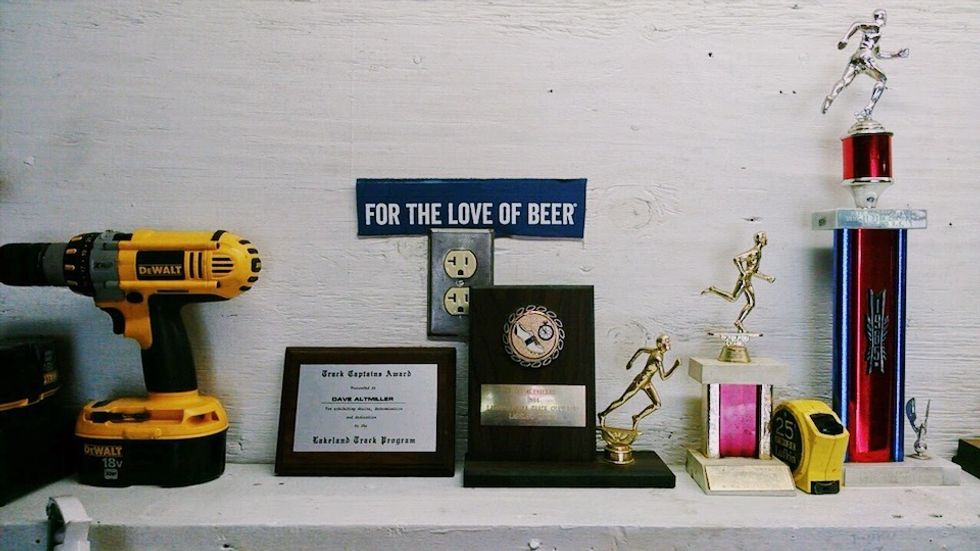My dad has always been the person I look up to most in life. He has a calm temper. He is patient. He is kind. He is humble. He is funny. He is my role model. When I was younger, he did everything he could to include me in his hobbies, which were never kid-friendly hobbies. He liked hunting and fishing and building things in the garage, and like some other dads, he loved drinking beer (still does). He'd let me touch the animals he successfully hunted, he'd let me reel in the fish he hooked, he'd let me make the measurement marks on the plywood he was using, and he'd let me blow into his beer bottle and make that hooting noise when it was empty.
As I get older and I become more involved, I have more bosses, and team leaders, and captains and Presidents. Few of them have put forth staple principles I see as leadership. Many of them became track captain because they were a good athlete, or the President of National Honor Society because they were a good student. But being a good leader doesn't just come with quick twitch muscles, or being right brain dominant.
Ironically enough, my dad just returned from a leadership conference. We had a conversation about what he learned and what we both thought about leadership. (That makes it sound so formal. I was in my pajamas, eating hash browns on our porch and he was playing poker on his phone.) But, this was the conclusion to our conversation.
A good leader values everyone on the team. Whether you are obedient and skillful, or defiant and untalented, you deserve recognition. If a leader only acknowledges the upper half of the team, how is the lower half supposed to grow? Maybe all the defiant, unmotivated member needs are to feel valued, in order to start improving his/her behavior. If a disobedient member feels forgotten, he/she will just continue their poor behavior and work ethic and sink lower on the team.
A good leader doesn't see weaknesses as weakness. A good leader sees weaknesses as skills to improve on, or places to grow. A leader is supposed to empower team members. And if you follow the old cliche, "a team is only as strong as its weakest link", then you must find ways to help the weakest link become stronger, better, and more confident. I think people neglect the importance of confidence. How am I supposed to give this sport my all, or give this job my all if I'm not confident in myself?
A good leader is humble. A good leader admits mistakes, makes apologies and sees themselves as no better than any other part of the team.
A good leader thinks differently, independently, and confidently. A good leader doesn't let others influence him or her. A good leader makes decisions responsibly and does what is best for the whole team. A good leader makes decisions other people don't want to. A good leader does what he or she deems "right".
I can't think of anyone who executes these points better than my dad. He is my lifelong leader, he is my parent, he is my everything. So thank you, Dad. I hope that when I get my "real world" job in a few years, my boss has half of the skills you do, and gives me an opportunity to share my ideas and opinions like you have done for and with me. I love you Dad.
(My dad isn't the only great leader in my life, obviously. When I was a little 7th grader who was brand new to cross country, countless juniors and seniors took me under their wing, and helped me along. My school has had some phenomenal student council leaders. There are countless teachers and family members I look up to as well. But specifically, thank you Marc Gaughan, Maria Gentile, Hannah Whitney, Robert Carter, and Catherine Clancy for being the other leaders I look up to. You have touched my life with an unwashable fingerprint.)




















